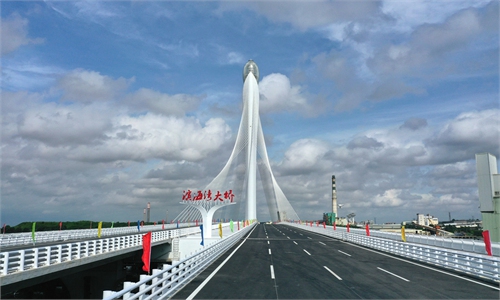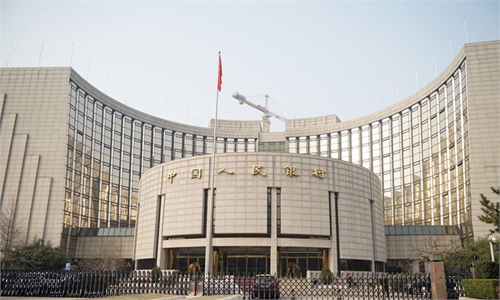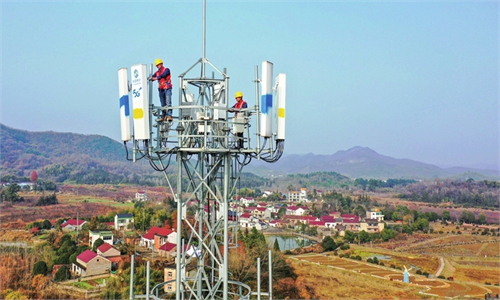China's infrastructure investment up 15% in July, set to maintain strong growth in H2
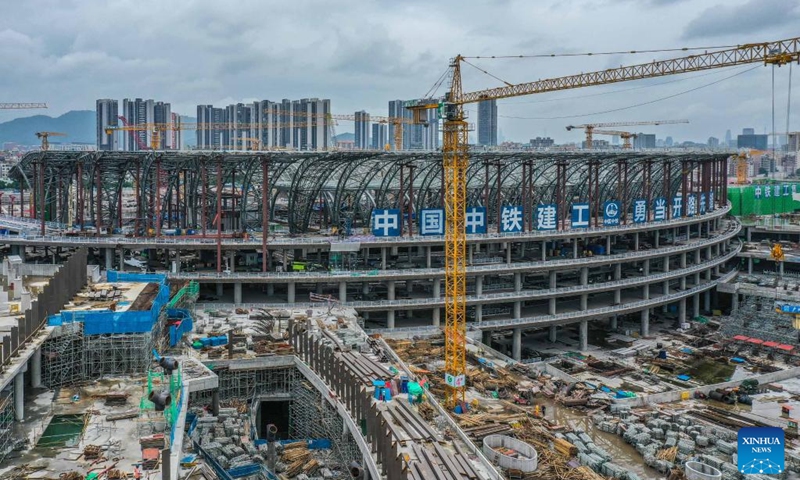
Aerial photo taken on Aug. 4, 2022 shows the construction site of Guangzhou Baiyun Railway Station in Guangzhou, south China's Guangdong Province. The main structure in phase one of the construction has been accomplished. (Xinhua/Liu Dawei)
China's infrastructure investment accelerated in July amid a package of support policies, as the world's second-largest economy revved up its growth engine to bolster a stable recovery amid downward pressure and mounting external uncertainties.
In July, China's infrastructure investment growth rebounded to about 15 percent year-on-year, thanks to sustainable funding and policy incentives as well as a low base effect, UBS economists led by Wang Tao said in a note sent to the Global Times on Thursday.
Between January and June, investment in the infrastructure sector rose 7.1 percent year-on-year, according to the National Bureau of Statistics.
The amount of special-purpose bonds that local governments issued sharply declined to 61 billion yuan ($9.03 billion) in July, but the comparatively large amount of issuance worth 2.1 trillion yuan in the second quarter continued to provide strong support for infrastructure investment in July and the third quarter, according to Wang.
Last month, the construction of 3,876 large projects across the country started, with total investment reaching nearly 2.4 trillion yuan, domestic news outlet Securities Times reported.
In the meantime, progress was made for some key infrastructure projects. The construction of a project linking China's two mega water infrastructures - the Three Gorges project and the South-to-North Water Diversion Project - started on July 7, the Xinhua News Agency reported. The project is scheduled to be finished in nine years, and will transfer water to the country's dry north.
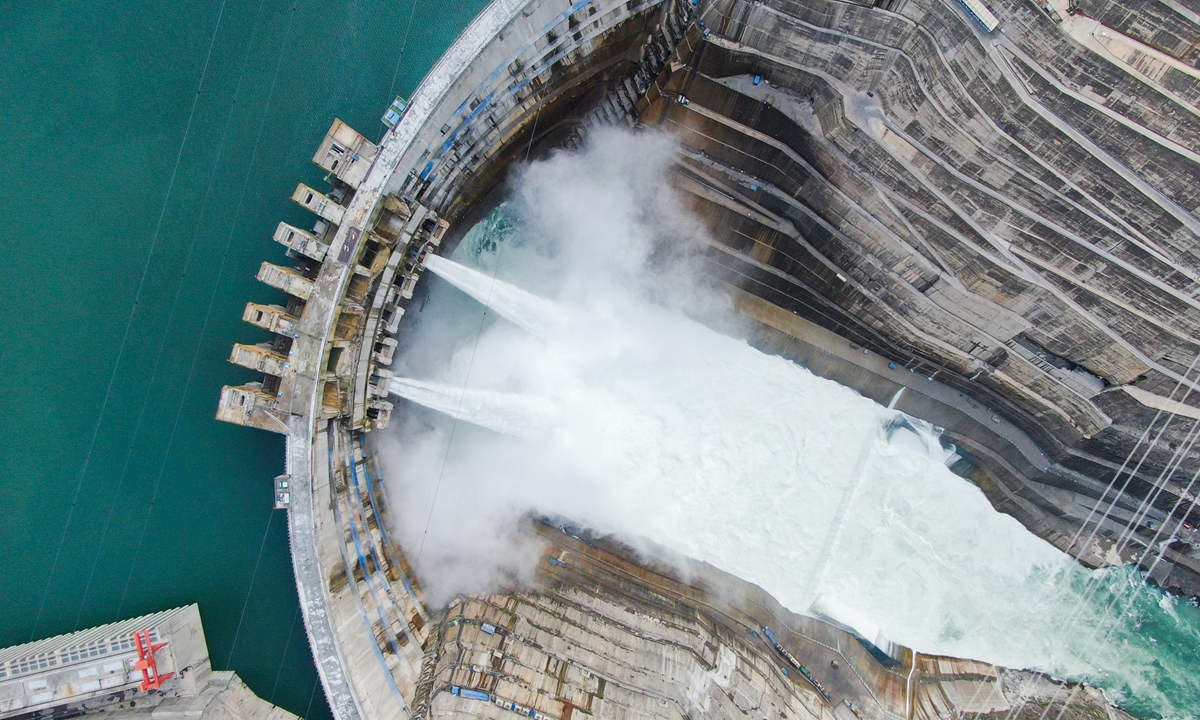
Baihetan Hydropower Station Photo: IC
Some microeconomic indexes also indicated that China's infrastructure investment perked up last month. Data from market information provider SCI99 showed that the average capacity utilization rate of domestic asphalt plants stood at 47.86 percent as of July 26, an increase of 3.16 percentage points on a yearly basis.
China is also counting on new types of infrastructure as part of its long-term goal to optimize the overall economic structure and foster new growth drivers. In terms of digital information infrastructure, the country added nearly 300,000 5G base stations in the second quarter, bringing the total number in use to over 1.85 million, data from the Ministry of Industry and Information Technology showed.
Recently, Chinese authorities repeatedly stressed expanding effective investment, underscoring the importance of the sector for buoying the economy amid weak demand.
An executive meeting of the State Council, the cabinet, on July 29 urged efforts to leverage the key factor of effective investment to generate concrete gains as quickly as possible. The third quarter is a peak season for construction projects, hence it's crucial to sustain the momentum of an economic rebound, according to the meeting.
On Monday, the National Development and Reform Commission said that efforts will be made to better give play to the coordination mechanism for important projects in order to promote effective investment, vowing to step up efforts in making early-stage preparations for such projects.
"Along with the release of effective policies and raw material price drops, the growth rate of the country's infrastructure investment is expected to further accelerate to 10 percent or higher in the second half of the year," Tian Yun, a Beijing-based economist, told the Global Times on Thursday.
He forecast that infrastructure investment will contribute around 1 percentage point to GDP growth in the second half, playing a larger role in promoting the stable recovery of the economy.
Policy banks will increase credit lines by another 800 billion yuan to provide financial support for infrastructure building, and a mechanism will be set up to meet the needs of key projects, according to a recent State Council executive meeting.
The cabinet also decided in early July to raise 300 billion yuan through financial bonds and other instruments to supplement capital for infrastructure projects.
